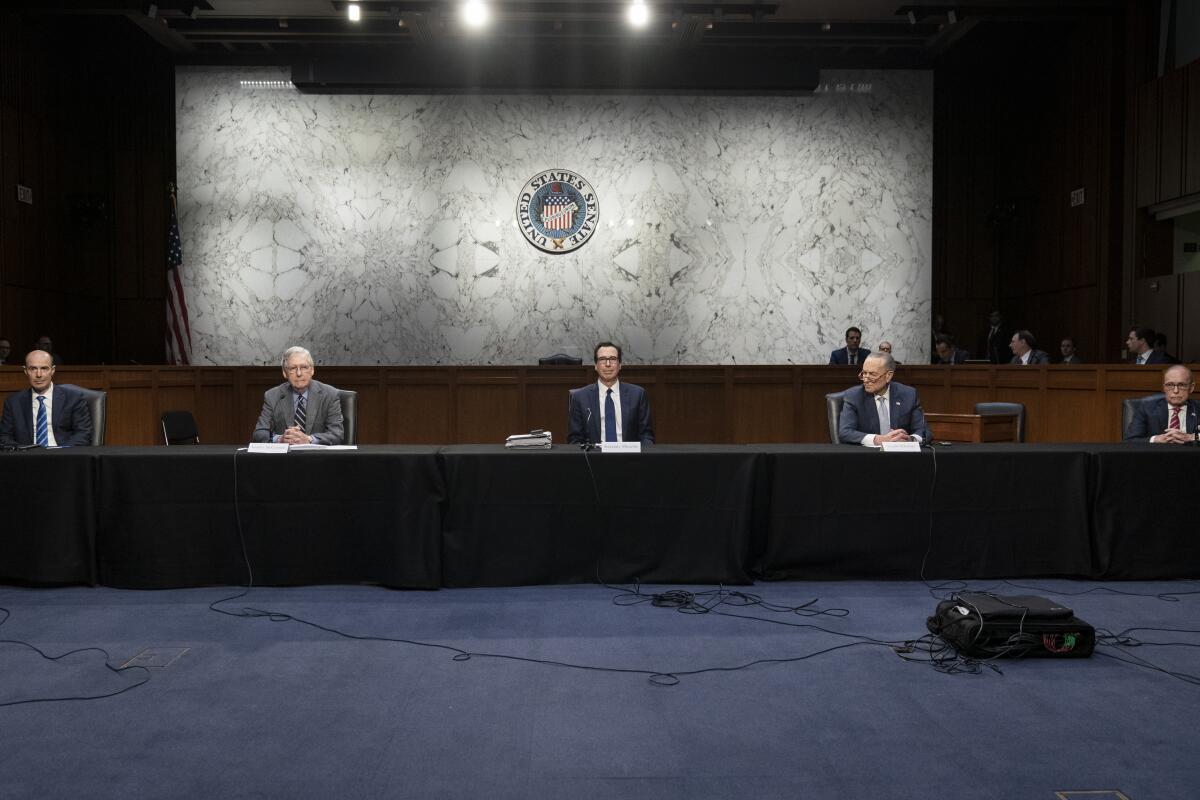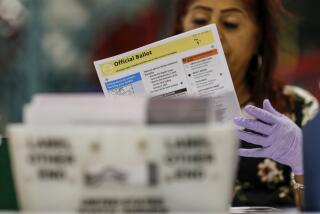Report may close door on remote voting in House during crisis, but some aren’t giving up

WASHINGTON — A key report from House Democrats has all but ruled out the idea of voting remotely during the coronavirus outbreak, but there is growing support for the idea in the Senate, where one member has tested positive for COVID-19.
A report released late Monday by Democrats on the House Rules Committee found that voting remotely would raise legal questions over whether that constituted a House “meeting,” as specified in the Constitution, and would risk a court challenge to any legislation approved during such a process.
But 17 senators from both parties support voting remotely, including progressive Sens. Bernie Sanders (I-Vt.) and Elizabeth Warren (D-Mass.) and conservative Sens. Kevin Cramer (R-N.D.) and Lindsey Graham (R-S.C.).
Congress developed contingency plans to conduct its work in a different location after the Sept. 11 attacks, but lawmakers have never considered how to keep the legislative branch functioning when its members are spread across the country.
The House is currently in recess and it’s unclear when lawmakers will return to Washington. House Speaker Nancy Pelosi (D-San Francisco) is hoping to pass the proposed $2-trillion economic stimulus plan by unanimous consent, without having to bring members back for a vote.
“There are serious constitutional, technological and security concerns about” remote voting, Pelosi said on MSNBC.
“They can be addressed, but for right now, we’re just working very hard to get unanimous consent so we can get this bill done, and then consider what the options are later,” she said.
The downside of that procedure is that any single lawmaker can block the measure — as long as he or she is standing in the House chamber when doing so.
Senators are also eager to return to their states, particularly after Sen. Rand Paul (R-Ky.) tested positive for COVID-19.
The question will only grow more pressing in coming weeks if Congress is needed to approve further stimulus bills and restrictions or reductions on domestic air travel make flying to Washington difficult.
But leaders in both chambers have shown opposition to changing the long-standing rules of Congress that require lawmakers to be present to cast votes. The Senate has been particularly averse. Its rules don’t even allow senators to have cellphones and laptops on the floor.
In addition to the constitutional worries, the House Rules Committee report, written by committee Chairman Rep. Jim McGovern (D-Mass.), lists a series of concerns, including cyberattacks, authenticating each House member and ensuring his or her vote is not swayed by bad actors. The report points to last month’s Iowa caucus electronic voting troubles as an example of a remote system gone awry.
But a growing number of rank-and-file members say Congress needs to embrace 21st century technology already widely used by businesses across the country.
Rep. Katie Porter (D-Irvine), who is leading an effort in the House, said in a recent interview that Congress has a “duty” to respond to the current crisis, even if temporarily. “We’re talking about remote voting for this moment. We’re not talking about a permanent change to allow remote voting.”
After Paul put himself in isolation, two other senators immediately went into quarantine because of their exposure to him, bringing the total number of senators who currently can’t vote because of the virus to five.
“This could grow,” said Sen. Richard J. Durbin (D-Ill.), who along with Sen. Rob Portman (R-Ohio) is leading the effort for remote voting in the Senate. Durbin warned that the number of senators directly affected “could reach an extreme where there is a question of an actual quorum” needed to conduct business.
Under the Portman-Durbin plan, the Senate sergeant at arms would be directed to come up with a method by which senators could securely vote remotely during a national crisis. The top two leaders in the Senate would have to agree that remote voting was necessary and it would be in effect for 30 days.
But for such a rule change to take place, the measure would need the support of 67 senators. Before Paul’s positive diagnosis, Senate Majority Leader Mitch McConnell (R-Ky.) ruled out the idea completely.
“We’ll not be doing that,” he said, suggesting he would instead lengthen the amount of time allowed for Senate votes so fewer senators are gathered together at one time.
More to Read
Get the L.A. Times Politics newsletter
Deeply reported insights into legislation, politics and policy from Sacramento, Washington and beyond. In your inbox three times per week.
You may occasionally receive promotional content from the Los Angeles Times.











